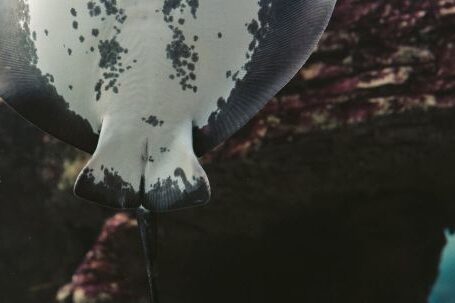Diving in warm water conditions can be an exhilarating experience. The crystal-clear waters, vibrant marine life, and comfortable temperatures make for a truly enjoyable dive. However, it’s essential to be prepared and take certain precautions to ensure a safe and successful dive. In this article, we will discuss some valuable tips for diving in warm water conditions.
Choose the Right Dive Suit
When diving in warm water, a wetsuit or a dive skin is often sufficient to keep your body warm and protected. The right dive suit will provide insulation and protect you from any potential scrapes or stings from marine life. It’s important to choose a suit that fits well and is made of high-quality materials to ensure maximum comfort and durability.
Stay Hydrated
Diving can be physically demanding, and it’s easy to become dehydrated, especially in warm water conditions. Make sure to drink plenty of water before, during, and after your dive. Dehydration can lead to fatigue and decreased concentration, which can be dangerous underwater. Keep a water bottle with you and take regular sips to stay hydrated throughout your dive.
Protect Yourself from the Sun
While diving in warm water, it’s crucial to protect your skin from the harmful effects of the sun. Apply a waterproof sunscreen with a high SPF before entering the water. Wearing a hat or a rash guard can also provide additional protection and prevent sunburn. Remember, even though you are underwater, the sun’s rays can still penetrate the surface and cause damage to your skin.
Be Mindful of Marine Life
Warm water conditions often boast an abundance of colorful marine life. While it’s tempting to get close and interact with the creatures you encounter, it’s important to remember to maintain a respectful distance. Some marine species may be territorial or have a venomous defense mechanism. Observe and appreciate from a safe distance to avoid any potential harm to yourself or the marine life.
Stay Alert for Signs of Heat Exhaustion
Diving in warm water can increase the risk of heat exhaustion. Keep an eye out for symptoms such as excessive sweating, dizziness, nausea, and rapid breathing. If you or your dive buddy experience any of these signs, it’s crucial to surface immediately, rest, and rehydrate. Heat exhaustion can quickly escalate into heatstroke, which is a serious medical emergency.
Practice Proper Buoyancy Control
Maintaining proper buoyancy control is essential in any diving condition, but it becomes even more crucial in warm water. Warm water tends to make divers more buoyant, which can lead to difficulties in maintaining depth and stability. Practice your buoyancy control techniques regularly to ensure a smooth and controlled dive.
Plan Your Dive and Dive Your Plan
Regardless of the water temperature, proper planning is key to a safe dive. Before entering the water, make sure to have a detailed dive plan, including the depth, duration, and any potential hazards or points of interest. Stick to your plan and communicate with your dive buddy throughout the dive. Remember, safety should always be the top priority.
In conclusion, diving in warm water conditions can be a thrilling and enjoyable experience. By following these tips, you can ensure a safe and successful dive. Remember to choose the right dive suit, stay hydrated, protect yourself from the sun, be mindful of marine life, stay alert for signs of heat exhaustion, practice proper buoyancy control, and plan your dive. With these precautions in mind, you can fully immerse yourself in the beauty and wonder of warm water diving.





